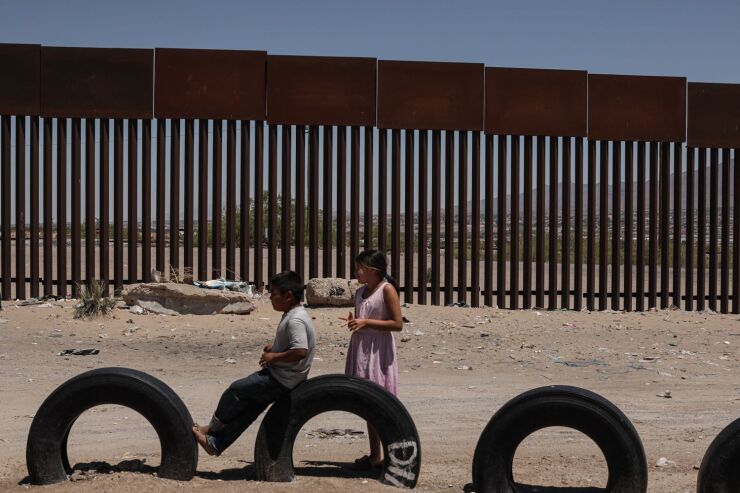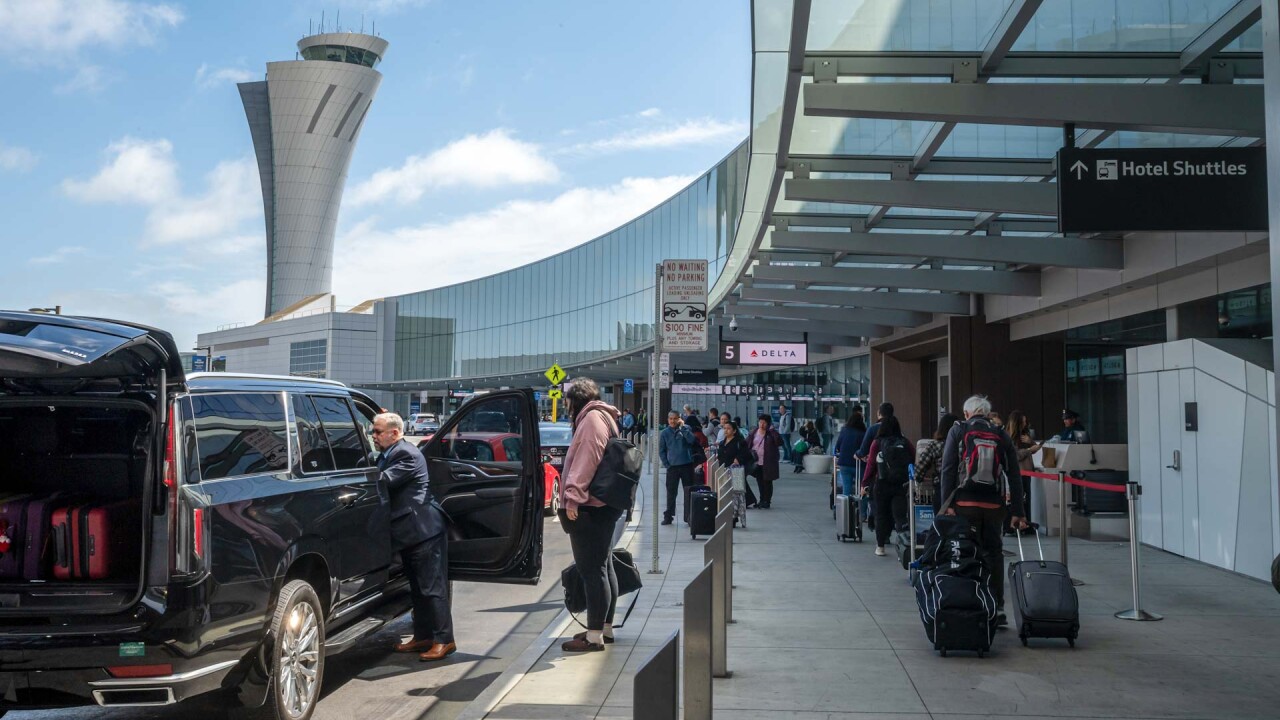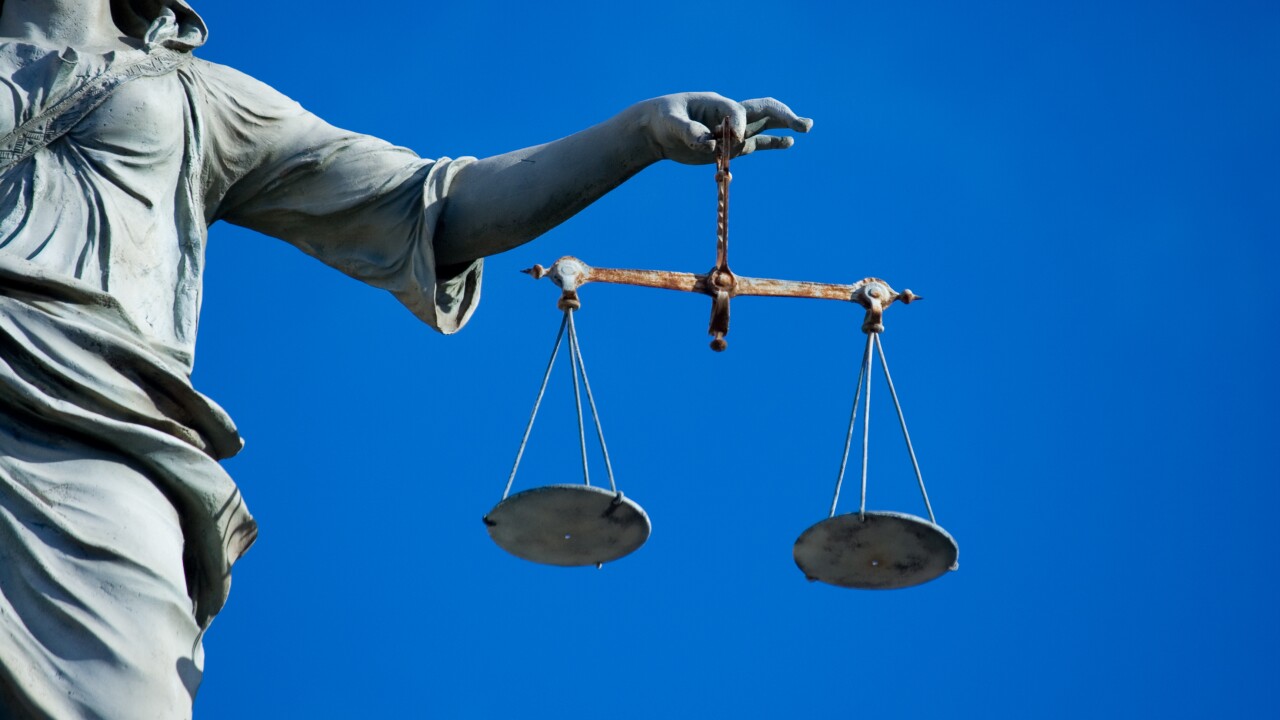
Texas could undertake the most expensive public finance project in the state’s history under Gov. Greg Abbott’s plan to extend a border wall heretofore funded by the federal government.
Although Abbott has not announced the cost for the project, estimates for the wall along all 1,900 miles of the U.S. Mexico border were as high as $25 billion.
The wall was a campaign promise of former President Donald Trump and only a small section of wall was ever built. President Joe Biden has dropped the project.
Abbott, who has adopted Trump’s slogans and campaign promises, announced recently that he would finance the wall with state revenues. That came after Don Huffines, a former Republican state legislator, announced he would run in the primary against Abbott, pledging to build the wall.
"We will completely shut down the border until the crisis is solved and eliminate all taxpayer-funded subsidies to illegal aliens," Huffines tweeted earlier. "I am not afraid to take on the federal government.”
Although Huffines built his campaign around his support for Trump, the former president has already endorsed Abbott.
Texas has already budgeted $1 billion for border security, Abbott said in a press conference in Del Rio.
“It will help all of us to work on ways to stem the flow of unlawful immigration and to stem the flow of illegal contraband,” Abbott said.
Abbott could include funding for the wall in a special session planned in the fall. That session already has a full plate, including redistricting and Abbott’s call to restrict voting in the name of election integrity.
A section of wall in Texas’ Rio Grande Valley was built at a cost of roughly $27 million per mile, according to federal records.
With its triple-A credit rating from all four ratings agencies, Texas has ample debt capacity for major projects. Lawmakers gave the Texas Transportation Commission $3 billion of bonding authority, and the state has also issued $3 billion of bonds for cancer prevention research.
A measure that died in the regular session could be resurrected in the special session to fund construction of the wall with state taxpayer money.
HB 2862 by Rep. Bryan Slaton, R-Royse City, would create a special border security enhancement fund from earnings on the state’s $10 billion rainy day fund to pay for the projects, which includes planning, designing, constructing and maintaining transportation and water infrastructure along the Texas portion of the international border with the purpose of preventing unauthorized crossings, the trafficking of controlled substances and terrorism.
Slaton proposed naming the barrier the "President Donald J. Trump Wall.”
"It's time to finish what President Trump started! Let's build the wall!” Slaton said on Twitter.
Part of the rainy day fund is already being used to secure bonds for covering nearly $1 billion of losses by the Electric Reliability Council of Texas during a February freeze that caused widespread blackouts.
Under HB 2862, Texas contractors incorporated in the state or that maintain a headquarters or principal office in the state would be given priority when it comes to project awards. The bill died in the House State Affairs Committee where it never received a hearing. Slaton’s bill stipulated that the governor of Texas would seek reimbursement from the federal government for amounts spent from the border projects fund.
Trump repeatedly promised that Mexico would pay for the wall without any evidence to support the idea.
In Texas, 281 miles of border wall have been completed or are under construction or in pre-construction, according to the U.S. Customs and Border Patrol agency.
While the wall is a potent political symbol, it is often bypassed using cheap ladders. Last week, a 24-year-old Mexican man died in El Paso after he fell more than 30 feet from a makeshift ladder, officials said.
According to the magazine Texas Monthly, wooden ladders representing about $5 worth of construction materials each have been found strewn around sections of wall.
A tunnel in the Rio Grande Valley under one section of wall was also found.
In addition to the cost of building the wall, the state would have to resolve issues involving private and federal land. Private landowners and ranchers who have had access to the Rio Grande for water would be shut out. The barrier would create a kind of no-man's land between the wall and the river's edge.
The federal government would also have to authorize construction of the wall through Big Bend National Park.





